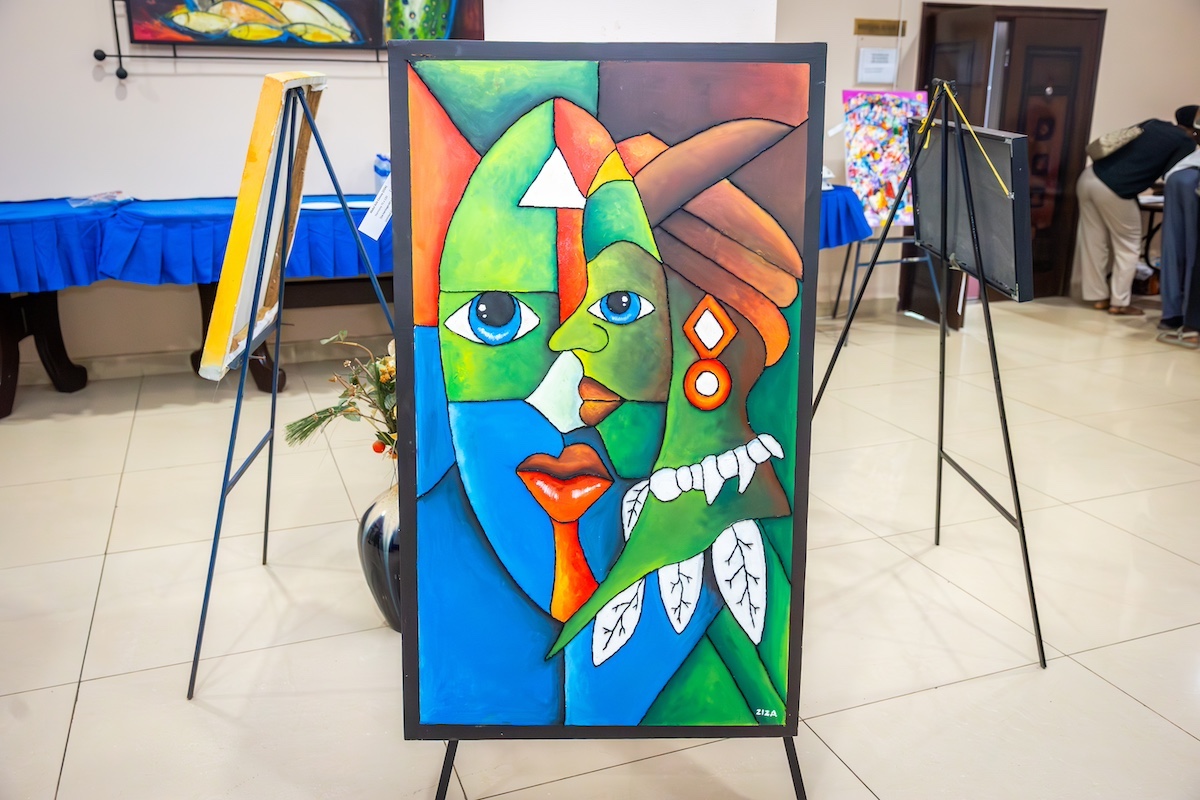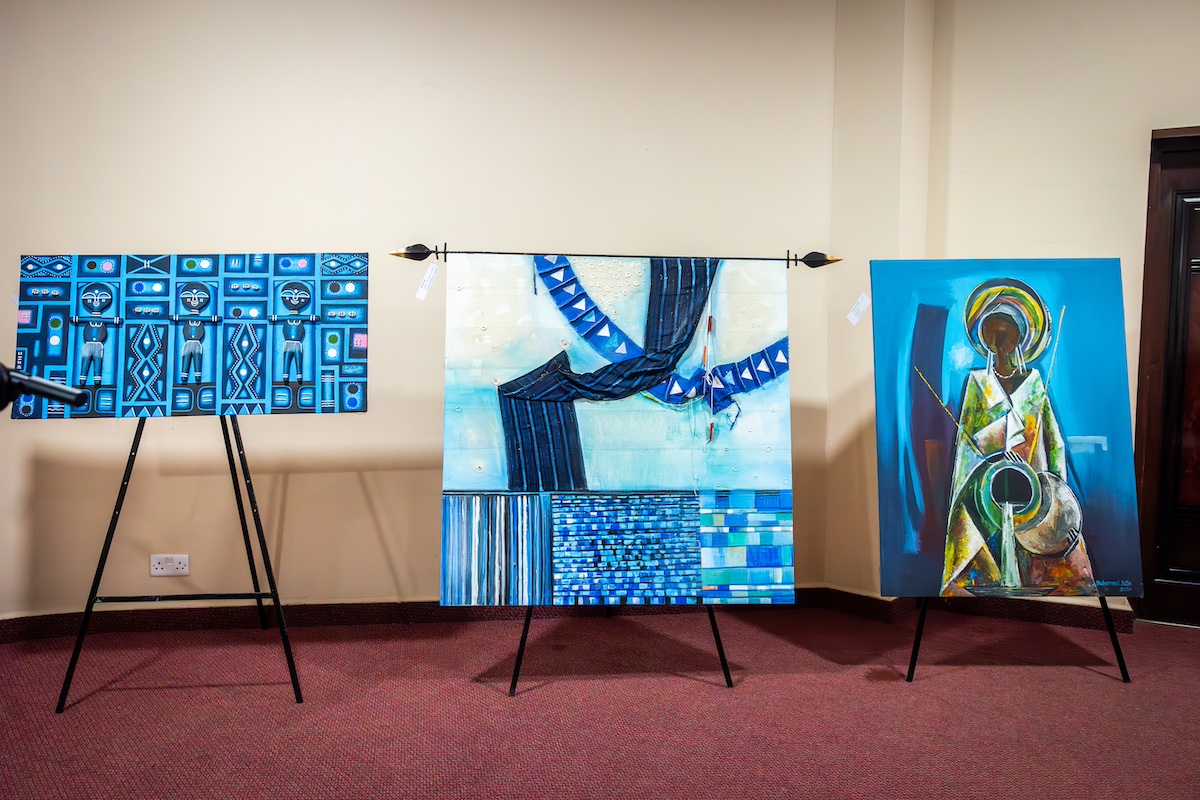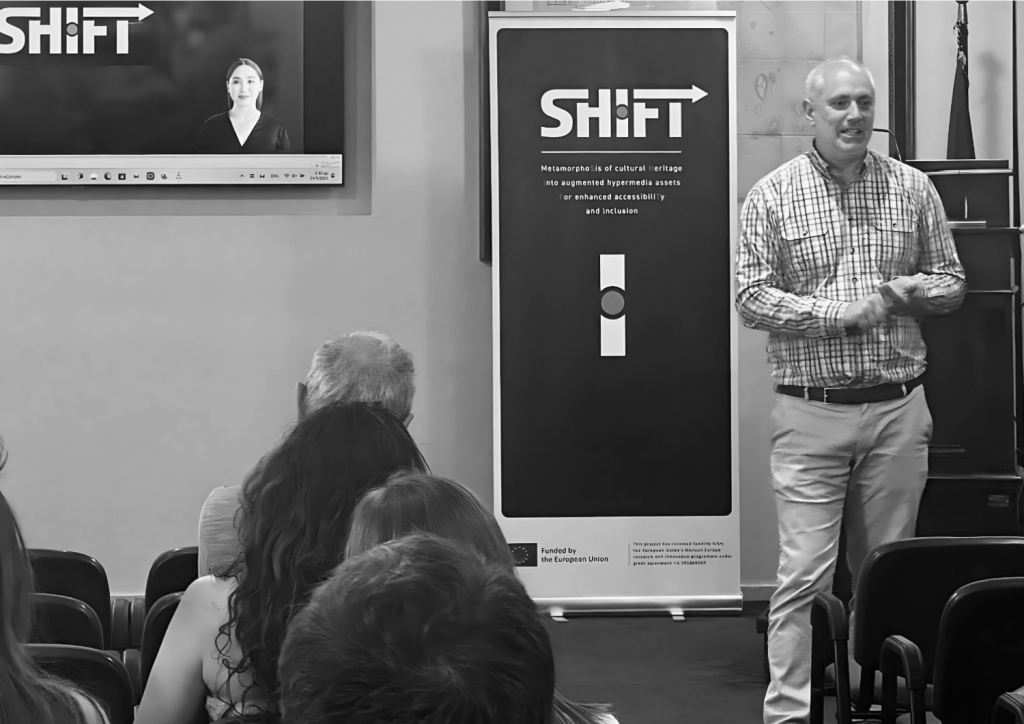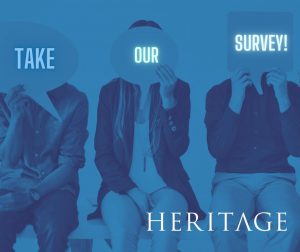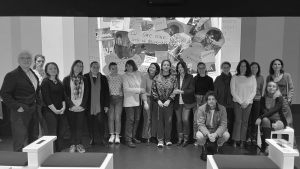: News
Training Artists, Telling Stories: HERITΛGE and VAAG Sign MoU in Banjul
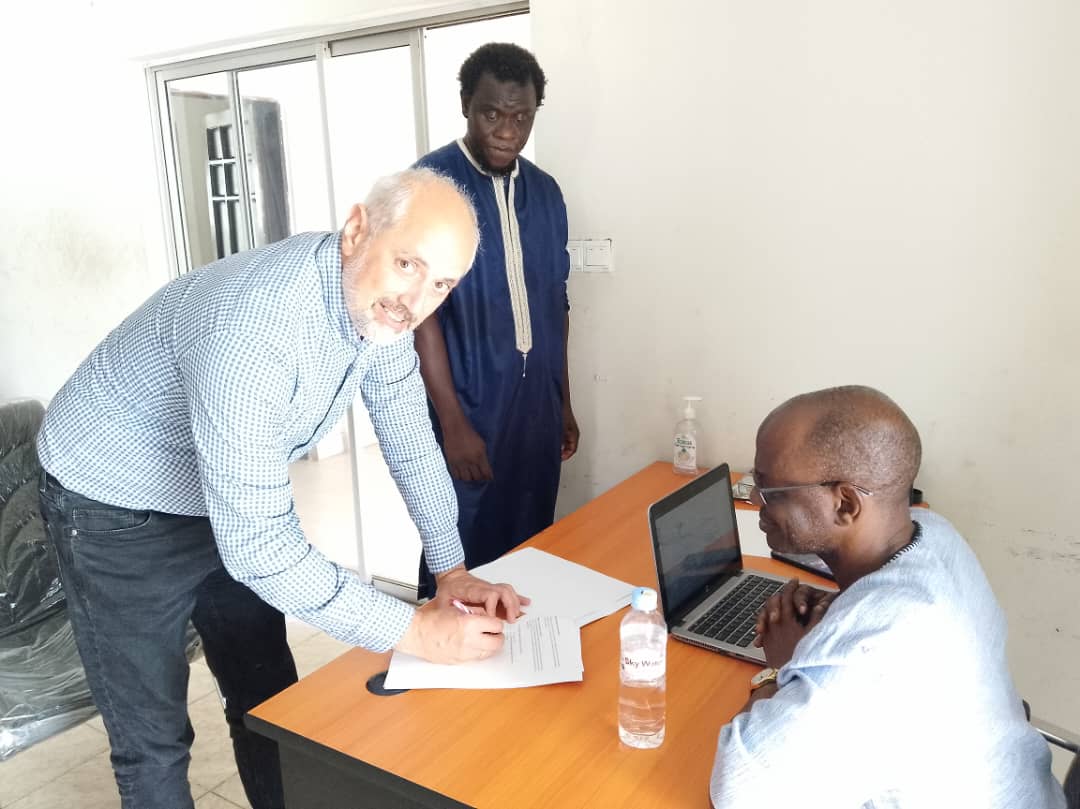 On Friday, July 18, The Heritage Management Organization (HERITΛGE) took another step forward in supporting The Gambia’s vibrant arts community by formalizing a partnership with the Visual Artist Association of The Gambia (VAAG) at the NCAC Pipeline Offices in Banjul.
On Friday, July 18, The Heritage Management Organization (HERITΛGE) took another step forward in supporting The Gambia’s vibrant arts community by formalizing a partnership with the Visual Artist Association of The Gambia (VAAG) at the NCAC Pipeline Offices in Banjul.
Dr. Evangelos Kyriakidis, Director of HERITΛGE, led a master class called “Telling Heritage Stories Through Art” for VAAG members. The session explored how visual art can become a bridge between past and present, helping communities preserve their stories while making them relevant for new generations.
The gathering drew important voices from The Gambia’s cultural landscape, including Mr. Hassoum Ceesay, Director General of the National Centre for Arts and Culture (NCAC), who emphasized the value of bringing together local institutions with international partners to strengthen heritage education.
By the end of the day, Mr. Modou Lamin Jatta, Chairman of VAAG, and Dr. Kyriakidis had signed a Memorandum of Understanding that opens doors for ongoing collaboration. The partnership promises more training opportunities, exhibition development, and chances for Gambian artists to share their heritage-inspired work with international audiences.
The collaboration is already showing results. This past February, VAAG organized a visual art exhibition during the HerMaP Gambia Certificate Award Ceremony, which marked The Gambia’s 60th Independence Anniversary. The exhibition showcased how contemporary artists are interpreting their nation’s story and contributing to conversations about identity and cultural memory.
HERITΛGE looks forward to continuing this work with VAAG and other local partners, creating spaces where heritage and creativity intersect. Together, they’re building platforms for artists to explore their history, connect with their communities, and imagine new possibilities for the future.
New Training Calendar: Online Workshops for Heritage Managers
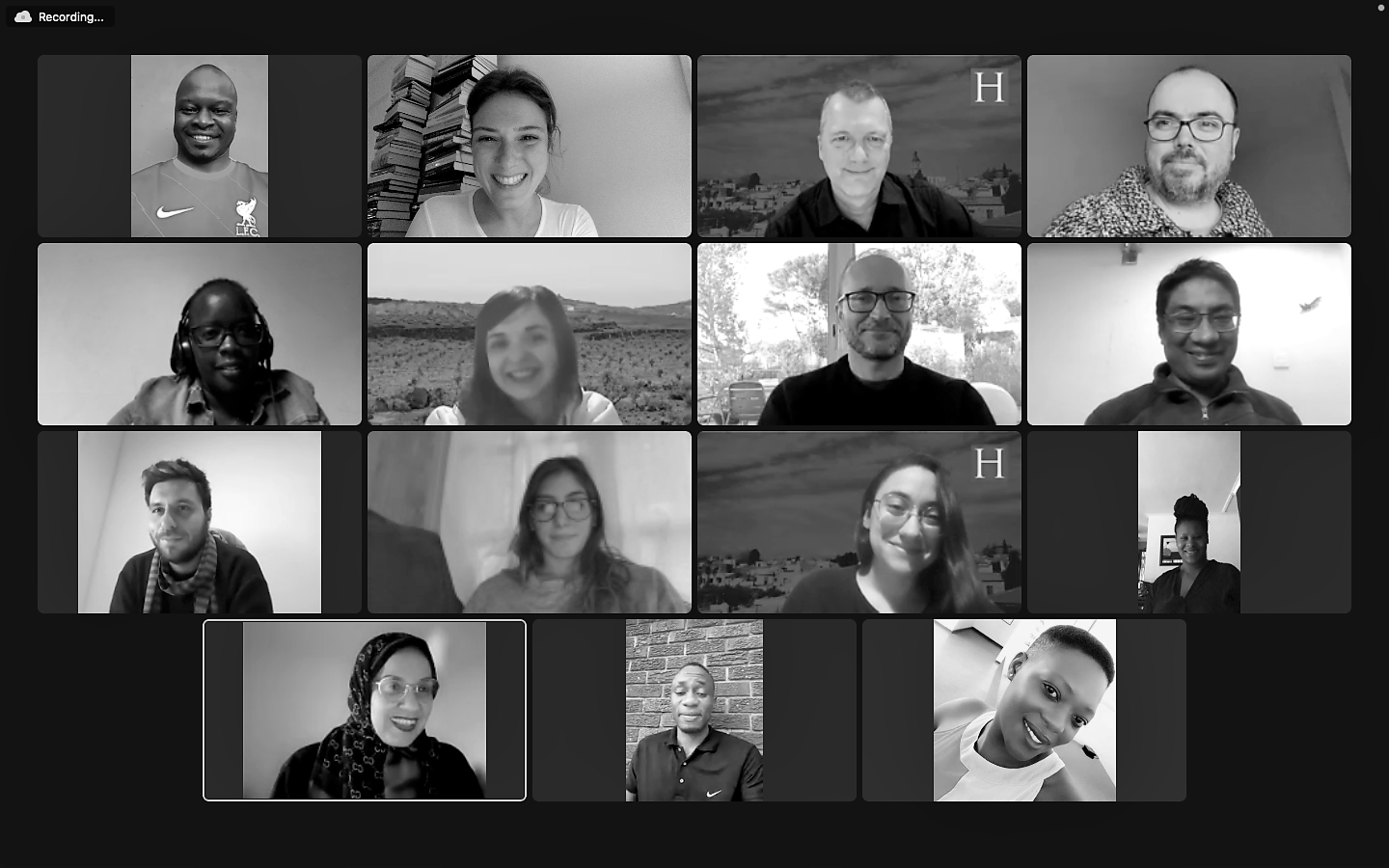 The Heritage Management Organization (HERITΛGE) is happy to announce a series of online training workshops for heritage professionals and caretakers for 2024-2025. A variety of scholarships and funding opportunities are available. As places are limited, candidates are advised to apply as soon as possible.
The Heritage Management Organization (HERITΛGE) is happy to announce a series of online training workshops for heritage professionals and caretakers for 2024-2025. A variety of scholarships and funding opportunities are available. As places are limited, candidates are advised to apply as soon as possible.
Online Workshop Calendar 2024-2025
Introduction to Heritage Interpretation for Site Managers | 01–03 October 2024
Master the principles of high-quality heritage interpretation and gain hands-on experience in implementing them at your site/organization in order to create meaningful and unforgettable experiences for visitors.
Engaging Communities in Cultural Heritage | 11–13 October 2024
Understand the community engagement process, a key heritage management strategy. Master the challenges of working with local communities discern between communities and audiences and understand audience segmentation, get introduced to ethnographic approaches to creating collaborative research-based programs, and learn the methods and techniques of oral history to elicit and document tangible and intangible heritage.
Conservation III: Preventive Conservation (pilot) | 15-17 November
A pilot workshop only open to heritage managers that have previously completed Conservation II: First Aid for Finds.
Interpretive Writing for Natural and Cultural Heritage | 25–27 November 2024
Learn how to write text that grabs and holds the reader’s attention. Discover and practice a wide range of techniques to engage visitors and master the techniques of interpretive writing. Participants will work to become a HERITΛGE-accredited Interpretive Writer, after successfully completing, and being assessed on, the exercises and activities.
Project Management for Heritage Managers | 13-15 December 2024
Gain the skills and knowledge to run a successful project from inception, through the planning and implementation phases to closure. Create a work breakdown structure, a critical path diagram and a Gantt chart. Research potential funders and write a grant application. Improve personal time management skills. Learn to think critically, identify risks and create solutions.
Organising Temporary Exhibitions from your Collections and Touring Strategies | 14–16 February 2025
The focus of this workshop is to give you the skills to ensure temporary, touring and partnership exhibitions can enhance and promote your institution’s mission, create new audiences and mutually beneficial partnerships. Attendees are encouraged to bring their own exhibition ideas to the workshop for discussion and development.
Communication Strategy and Strategic Marketing for Cultural Organizations | 07-09 March 2025
Join a focused learning experience that provides a systemic approach to successfully attract key audiences’ attention through traditional, new, and social media. Acquire a working guide to effectively communicate news, initiatives, and announcements of your organization and manage communication around a crisis or issue.
Successful Fundraising for Heritage Managers: Strategies and Best Practices | 28-30 March 2025
Start-up and build an organization’s contributed revenue to increase its impact in the world. Participants learn best practices and apply them to create the case for support and letter of inquiry for their own organization or project. Workshop sessions combine live and asynchronous lectures, case studies, class discussions and interactive exercises.
Conservation I: Introduction to the General Principles of Cultural Heritage Conservation | 4-6 April 2025
Learn the fundamentals, the ethics, the evolution, and the contemporary international context of conservation. At the end of the course, participants will be able to understand the potential of conservation, together with the processes which are necessary to maximize it.
Strategic Planning for Heritage Managers | 9-11 May 2025
Successful strategy can lead to success and this course will provide participants with the tools and methodologies to successfully formulate and implement strategy in organizations managing cultural heritage. Learn the methods and tools of strategic analysis that will enable you devise and evaluate alternative strategic choices and comprehend the demands of a strategy implementation project.
More workshop dates will be announced soon. To apply visit our Executive Leadership Training page.
2023- 2024: Our academic year in review
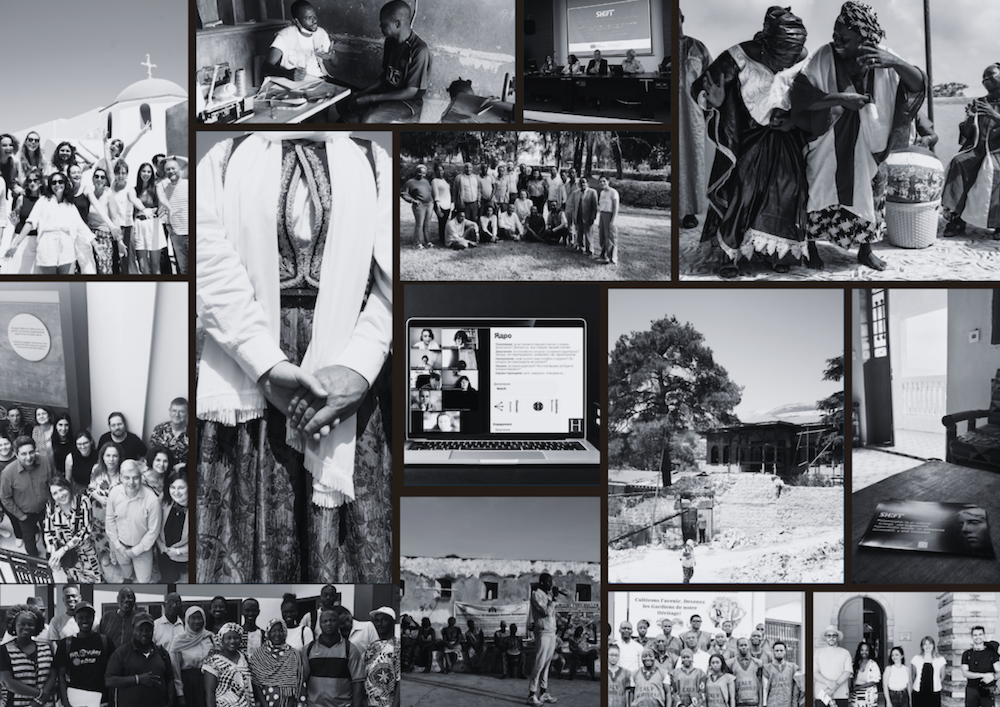 On Saturday, June 30th, the HERITΛGE team wrapped up the 2023-2024 academic year with an event on the Greek island of Paros island to mark the end of our Community Engagement for Cultural Heritage Summer Field School. The event was the culmination of possibly the most successful academic year since the organization was founded 15 years ago.
On Saturday, June 30th, the HERITΛGE team wrapped up the 2023-2024 academic year with an event on the Greek island of Paros island to mark the end of our Community Engagement for Cultural Heritage Summer Field School. The event was the culmination of possibly the most successful academic year since the organization was founded 15 years ago.
During the last 12 months, HERITΛGE completed 40 training activities that included online and in-person workshops, two hybrid summer schools, and an academic Certificate program bearing ECTS credits, delivered in cooperation with HOGENT University in Belgium. Over 650 heritage managers and caretakers were trained in managing heritage assets, independent of project specifics.
We expanded our curriculum with a new conservation course, First Aid for Finds. The 3-day online workshop complements the Introduction to the General Principles of Cultural Heritage Conservation workshop we introduced in the academic year 2022-2023. In the past year, we also ran two successful pilot programs in Interpreting Heritage and Engaging Communities for Climate Change and in Community and Economic Development, focusing on community-based tourism. Both will form part of our 2024-2025 academic year training offerings.
We also expanded our partnership with the Mellon Foundation through our HerMaP Africa program, funded by the Foundation’s Humanities in Place initiative. Through HerMaP Africa we have already awarded 60 grants and 60 fellowships to heritage organizations and professionals across Africa. Through HerMaP Gambia, a program co-funded by the European Union, we continued to work to strengthen The Gambia’s heritage sector in order to contribute to the creation of more and better jobs for the country.
Thanks to the British Council, our project in Pakistan on the protection of Buddhist rock carvings in Swat (in partnership with the Italian Mission and EssaNoor Associates) has gotten off the ground. Our J.M. Kaplan Fund work in Iraq has been completed and so has our Creative Europe project in Ukraine, training heritage managers in digital storytelling for Ukrainian Museums – together with Ukrainian partners. Our cooperation with Aliph and local partners enabled us to contribute to the efforts to safeguard local heritage in the aftermath of last year’s catastrophic earthquakes in Turkey and Syria. This academic year we also helped create the Living Heritage Network which aims to bring together and empower all organizations and individuals working with Greek living heritage.
Meanwhile, we continued working with some of Europe’s best-known academic and research institutions as well as heritage organizations and private businesses to make cultural heritage more accessible and inclusive through SHIFT, a project funded by the European Union’s Horizon Europe program.
Finally, earlier in 2024 we started working on AHEAD, another Creative Europe program, this time aiming to strengthen European cultural heritage institutions’ audience development efforts.
These are most but by no means all the projects our team is working on, all the while expanding HERITΛGE’s impact and outreach efforts. Stay tuned for more!
SHIFT Consortium Advances Cultural Heritage Accessibility: Highlights from Athens Event
The HERITΛGE team was very happy to host our colleagues from the SHIFT project Consortium in Athens last week to discuss progress made and the next steps the consortium will take in its work to make cultural heritage more accessible, inclusive and appealing for all. The consortiun also presented the project which is funded by the European Union’s Horizon Europe program, to a select group of heritage professionals, policy makers, and stakeholders on Friday May 24th, during an event at the Athenian Museum.
HERITΛGE’s director, Dr. Evangelos Kyriakidis, opened the event, underlining the significance of the project: “We are very proud of the Organization’s participation in the SHIFT program and happy to be able to present here in Athens the first samples of the partner’s work with the aim of making cultural heritage more accessible, inclusive and attractive,” Kyriakidis said.
Razvan Purcarea from project coordinator SIMAVI briefly presented the project with help from representatives from Queen Mary University of London, the Technical University of Munich, the Foundation for Research and Technology (FORTH), and the technology company audEERING, all members of the SHIFT consortium. During the event, Dr. Angelos Giokas from the Athena Research Center gave a brief presentation of PREMIERE, a project for accessibility and inclusion in the performing arts, which is also funded by the European Union’s Horizon Europe program.
Learn more about SHIFT: https://shift-europe.eu/
Shaping the Future of our Training in North America: Your Voice Matters!
At HERITΛGE, we’re on a mission to empower heritage professionals across the world. As we expand our presence in North America, we recognize the importance of understanding the unique needs and challenges faced by heritage professionals in the region. That’s why we’re reaching out to you – the experts at the forefront of heritage preservation – to help us shape the future of heritage management training.
Your Voice, Our Vision:
North America boasts a rich tapestry of cultural heritage, from historic landmarks to indigenous traditions. To ensure that this heritage is preserved and celebrated for generations to come, we need your input. By participating in our brief survey, you’ll have the opportunity to share your insights and contribute to the development of training programs that are tailored to the needs of heritage professionals in the US, Canada, Mexica, and the wider region.
Your responses to our short survey will guide us in identifying areas for improvement and developing new initiatives that better serve the heritage community in North America.
A Chance to Win
As a token of our appreciation for your participation, we’re offering two (2) lucky participants the chance to win a scholarship to a HERITAGE online training workshop of their choosing. This scholarship, valued at $3,000, provides access to world-class training opportunities designed to enhance your skills and expertise in heritage management.
Take our Survey!
Simply click here to access the survey and share your valuable insights.
We would be very grateful if, upon completion of the survey, you shared the link with your network of heritage professionals to ensure we reach as wide a sample as possible.
Stay Connected
Be sure to follow us on LinkedIn for updates on the survey results and announcements of the scholarship winners. Together, we can make a meaningful impact on the preservation and promotion of North America’s diverse cultural heritage.
Unveiling AHEAD: a new EU-funded project to develop audience engagement
At HERITΛGE we are delighted to announce the launch of a new EU-funded project AHEAD (Accessible Heritage Experience for Audiennce Development). The project, that seeks to remodel the heritage experience and provide a blueprint to help cultural organizations develop and engage new and existing audiences, held its kick-off meeting in Rome on January 24-26 2024.
AHEAD, which is funded by the European Union’s European Education and Culture Executive Agency (EACEA), brings together a dynamic consortium of partners, including Melting Pro (MEP), an Italian cultural consultancy that is responsible for managing the project; the Italian Ministry of Culture (MIC), the University De Le Iglesia De Deusto, in Bilbao, Spain, and the Brussels-based innnovation agency Impact Valley. Participants include the Archaeological Park of Ostia Antica in Italy and the Altamira National Museum and Research Centre in Spain.
Challenges in Cultural Heritage Sector and the AHEAD Impact Vision
Cultural Heritage (CH) stands as a vital economic and social resource for EU countries, yet many institutions face challenges in financial sustainability and audience engagement. AHEAD tackles these issues by addressing the low levels of entrepreneurial and audience-centered skills that are often found in cultural heritage institutions, introducing participatory audience development practices, and breaking down resistance to new marketing approaches among CH professionals all the while focusing on increasing accessibility for all and engaging local communities.
AHEAD’s vision is to innovate working practices in the CH sector by applying human-centered approaches, learning by doing, and data-driven methodologies. This transformative project aims to make the cultural heritage sector more relevant to communities, financially sustainable, and a catalyst for social, cultural, and economic growth.
The AHEAD Blueprint
AHEAD comprises three key components:
- Capacity Building Program: Enhancing the skills of CH professionals in Audience Development, Marketing & Promotion, and Business Models
- AHEAD Model: Developing a participatory audience development practice, piloted with CH organizations from Spain, Italy, and Greece.
- Impact and Innovation Strategy: Creating a strategy to upscale the methodology at the EU and international levels, overcoming systemic barriers in management and participation.
The AHEAD journey began with its kick-off meeting in Rome on January 24-26. Partners collaborated on shaping the AHEAD manifesto for audience engagement, taking into account all three key components of the project. Notably, the meeting saw the participation of end-users, including representatives from the Archaeological Park of Ostia Antica and the National Museum and Research Center of Altamira who contribution vital insights for the development of the project’s components.
During the project, HERITΛGE introduced partners and participants to SHIFT, a major EU-funded research project to make cultural heritage more appealing and inclusive.
Importantly, the project wrapped up with a presentation of AHEAD and a networking session with representatives of Italian cultural institutions at Rome’s Europa Experience – David Sassoli building that showcases the institutions and contributions of the European Union.
Stay tuned for updates as AHEAD unfolds, unlocking the full potential of cultural heritage for current and future generations.

